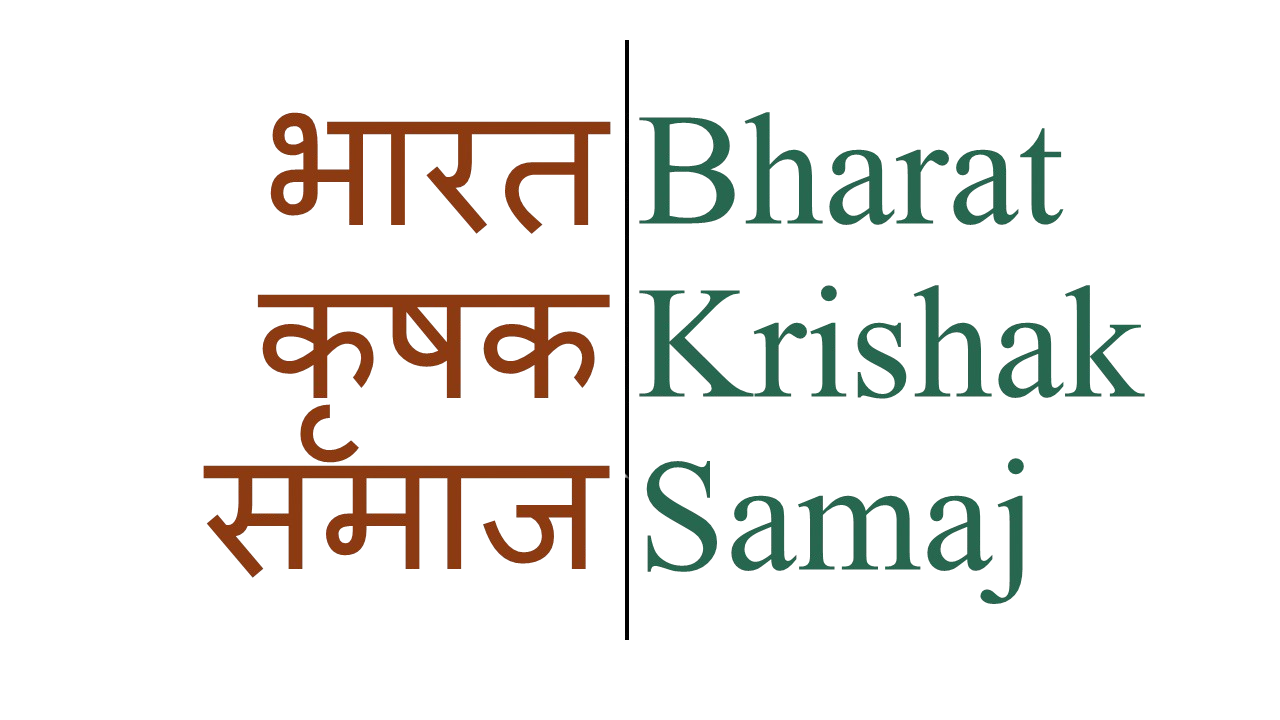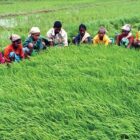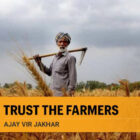The problem is agriculture, the largest private sector enterprise, is unprofitable today. It would not have become so had the country made serious investments in agriculture.
The new year is as good a time as any to begin with a conundrum. The Constitution of India lays great emphasis on the Indian villages, on agriculture, the village panchayats, on the farming industry and animal husbandry. It does not talk about the Planning Commission or of “middlemen.” Yet the future of the Indian farm sector is intricately woven with the mindset of the Planning Commission and the shenanigans of the middlemen that abound in the Indian economy.
The manner in which the Indian farmer is buffeted by the whims of one and wiles of another, brings to mind an interesting Oscar Wilde observation: “Selfishness is not living as one wishes to live; it is asking others to live as one wishes to live.” The Indian farmers are expected to love the doles handed over by the government and live on the mercy of its subsidies and welfare schemes. That has been the existing order since Independence and liberalisation measures have come in dribs and drabs, making hardly a difference to the real status of the farmer. Agriculture, over the years, too has been performing poorly.
Given the urgent need to enhance India’s food security and to allow the farmer to attain his potential, there has been talk of creating a policy regimen that would empower the farmer to realise his potential. The budget is as good a time as any to start to initiate change at the institutional level for starters. Can the union budget 2012-13 fulfil the aspirations of the farming community, the aam aadmi and not expect them to lap up what they are told will be good for them? Indeed, can the budget make a difference?
To go back to the Indian Constitution, what does find mention in it are the district planning committees, which were revived by the Panchayati Raj institutions by the former minister, Mani Shankar Aiyer. These have unfortunately remained on paper only. As a member of the Bharat Krishak Samaj, one has had the opportunity to visit farmers in different states every month with the rather impossible task of explaining to them who is responsible for their plight. It is equally impossible to find a simple way to connect the dots from the middlemen to the Planning Commission. It is, however, not so difficult to understand that it is, eventually, the farmer – who votes on the basis of caste and sectarian considerations, divided further by the divisions on political attachments, amplified by Panchayati Raj elections – who is responsible for his own miseries. Indeed, the farmer wonders who is responsible for the soup that he finds himself in but never asks what his own role is in the process of the great Indian democracy.
The farmer sells his potatoes today at ₹2 a kg, which sells in the retail market for ₹10 a kg; a 500 per cent increase after a 10-hour journey. That is an injustice that the budget alone cannot solve but better legislation and effective implementation of better policies can redress. What the budget can definitely provide is a sustained flow of increased funds for agriculture infrastructure. On the eve of the budget-making exercise, it would be worthwhile reminding the finance ministry of the words of J. Paul Getty, “Money is like manure. You have to spread it around or it smells.” In India, one has the smells of scams and sell-outs. Perhaps it is time for some of the money to flow to the agriculture sector and for it to be used efficiently.
Two recent experiences illustrate the misfortune of the farming community. On a drive to Bhatinda for a debate on CNN-IBN on the FDI in retail, I saw a farmer sitting by a heap of potatoes and stopped to ask him why, for heaven’s sake, was he guarding his potatoes that were selling at ₹2 a kg that day (it cost more to transport them to the marketplace). Poker faced, he said: “I am not guarding my potatoes but am here to save my field lest the neighbour dump his crop of potatoes on my land!” On another trip to farms in Uttar Pradesh, one learnt that a farmer had packed his potatoes for sale, the thieves came at night and cut open the sacks and stole the sacks; not the potatoes.
While the government is in a self-congratulatory mood over having contained food inflation, many farmers are contemplating suicide. The actual number of farmer deaths is shocking, especially in the more progressive Indian states. It should make those who gloat over the nine per cent growth of the economy hang their heads in shame. Yet there is no shame; not even a serious approach to addressing the question of farm finance seriously. Nothing is more astounding or humiliating than to have individuals, whose NGOs are funded by foreign funds, deciding and dictating policy, while the Indian farmer suffers their ignorance and influence in silence.
Why does the Indian farmer continue to suffer thus? It would be worthwhile to expound a farmer’s position on this question and risk being dismissed by the intellectuals who make and influence policy as the ‘ravings of a mad farmer’. The Indian democracy is like a pressure cooker, with every election serving as a point where the pressure cooker releases steam. This is just like people giving vent to their anger and releasing their pent up frustration at the elected representative or government of the day. It is the Indian democratic process that prevents the sense of deprivation from getting inflamed into a revolution. The elections provide safety value and perpetuate the status quo. Were it not for its universal adult suffrage, India too would have its Arab Spring.
Policymakers and extra-constitutional authorities are invariably confused about the distinction between the problem and the consequences of the problem the world over. While ignoring the problem, there are efforts to mitigate the consequences of poor planning and execution of lopsided policies. India continues to find money for subsidies like MNREGA and the Right to Food Bill. While these are noble objectives, the approach is wrong; completely wrong. The problem is agriculture, which is the largest private sector enterprise, has become unprofitable. Farmers are thus required to be fed cheap grain and jobs need to be created for the villagers. Had the country chosen to invest in making agriculture remunerative, the farmer would not need such acts of mercy; nor such grand wastage.




